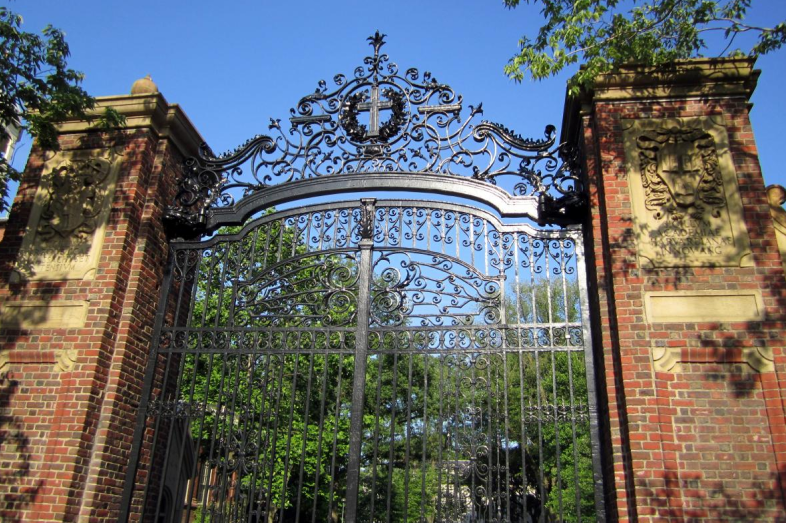

In the conversations surrounding low-income students’ access to college, there’s one statistic that Harold Levy finds most worrisome: Among those students who are in the top quartile academically and also among the lowest quartile financially, 22 percent never take the ACT or SAT.
That means many very smart, very poor kids aren’t even getting close to college.
“That’s a national shame. That’s something that has to change, and it is something that we do not talk about,” said Levy, executive director of the Jack Kent Cooke Foundation and former chancellor of New York City schools.
Levy and other experts weighed in on college access issues for the country’s more vulnerable students during EWA’s recent National Seminar in Chicago. The panel, “Opening Doors: Helping Students Make Their Way to College,” discussed the barriers to higher education and various programs and supports working to reverse such trends.
Levy said low-income students are simply less likely to have the opportunities to reach for high levels of academic achievement, and if they do, they’re more at-risk to fall out of that top category.
“It’s shocking,” he said. “We’re leaving lots and lots of smart, poor kids on the side of the road.”
The Jack Kent Cooke Foundation offers some of the biggest scholarships in the country to students with financial need and high-academic ability. While many people are addressing achievement gaps, Levy said he’s bothered by the lack of conversation around the country’s “excellence gap,” the proportion of low-income students versus high-income students who reach high levels of academic achievement.
“People think that if you’re smart and you’re poor you can write your own ticket. Nothing could be further from the truth,” he said. “Not true…It’s not like when you and I went to school. It’s much harder if you’re a poor kid to stay on top.”
Along with Levy, EWA’s panel included: Alix Coupet, chief college officer of the University of Chicago Charter School; Jenny Nagaoka , deputy director of the University of Chicago Consortium on Chicago School Research; and Oscar Sweeten-Lopez, program director for the Dell Scholars Program.
Coupet said his school works to ingrain college-going expectations into students from the time they start preschool. Classrooms are decorated in the regalia of the teacher’s alma mater. The school is even strategic about which college’s T-shirts they might hand out as a prizes.
“We’ll give you a Knox College shirt over a Southern Illinois,” Coupet said.
Much of the work is about raising expectations for students, who in many urban communities have had low expectations for years, he said.
“I’ve had so many students coming to me with a list of colleges and say, ‘Hey, Mr. Coupet, this is where I want to apply,’” he said. “And, frankly, they have the GPA and test scores to do so much better.”
While not all students will make it to Harvard, he encourages students to pursue the country’s best, most selective colleges, rather than settle for a poor match.
“I tell all my seniors: Get denied to colleges, because underselling is such a pervasive phenomenon in urban communities. Students will attend colleges that may not meet them intellectually where they are,” Coupet said.
At the Dell Scholars Program, approaching college is about far more than just academics. Sweeten-Lopez said they talk with schools and students about academic, financial and situational factors to create a holistic college success plan that considers more than just data, but a student’s personal story.
“We’ve got to expand the definition of college readiness. It is not just about their academic performance or academic preparation, which is a key part of it obviously,” Sweeten-Lopez said. “But it’s also about teaching families and students about how they’re going to finance their education, what are good college choices based on their circumstances.”
Sweeten-Lopez said students’ situational factors, or the “life happens stuff,” just isn’t talked about enough. And those things are often what keep students from excelling. He said 47 percent of Dell scholars who are struggling academically attribute their issues to non-academic factors.
“I can’t study because I’m working 40 hours a week because I’ve got these financial responsibilities,” Sweeten-Lopez said a student might say of her struggles. “So just throwing more tutoring sessions is not going to solve that issue for that student.”
Nagaoka agreed that little barriers could turn into reasons why low-income students don’t attend or complete college. For some students, a housing deposit or a health fee can be just as challenging as a calculus class.
That means colleges need to take more responsibility for helping students finish, she said. Instead of an engineering school having the mentality that some of its students are meant to be engineers and some aren’t, she said they should adopt the philosophy that all those accepted into a program have the potential to finish.
“How do you have this culture shift, where it’s not about sorting kids into different programs or determining who belongs or who doesn’t,” Nagaoka said. “But really sort of saying, ‘If we accept you, we believe you actually have the potential to get a degree from our institution.’ That’s something that’s a fundamental shift that would really make a huge difference in higher ed.”